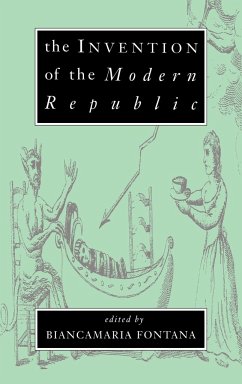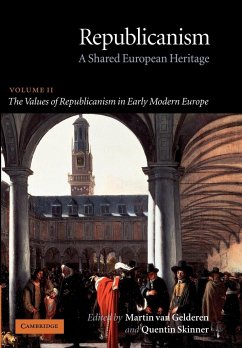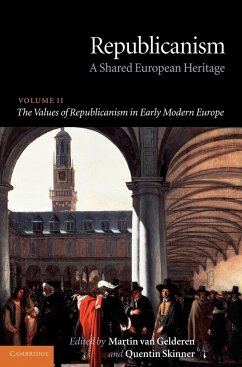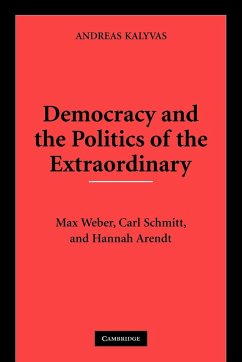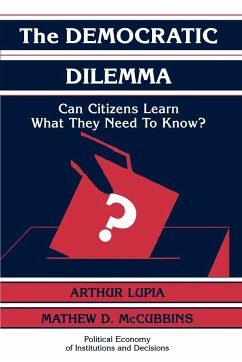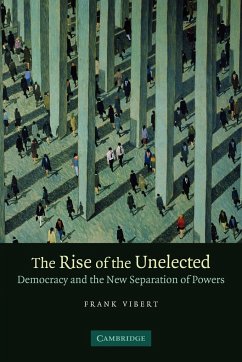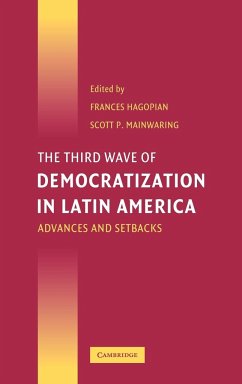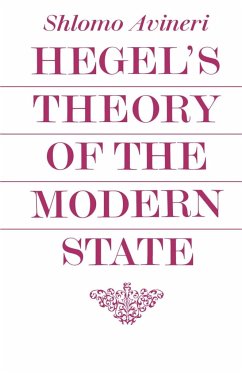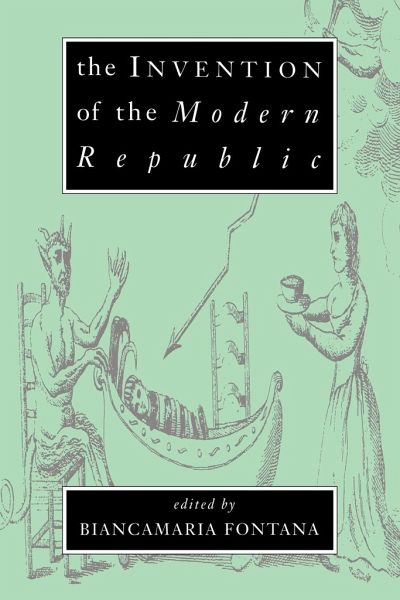
The Invention of the Modern Republic

PAYBACK Punkte
31 °P sammeln!
An investigation of the origins of republican government, by some of the world's leading historians of ideas.Why are republics the most common form of political organization, and the one most readily associated with modern democracy, when until the late eighteenth-century it was generally believed that republics could function only in small urban territories with considerable ethical and political cohesion? In The Invention of the Modern Republic a team of highly distinguished historians of ideas answers this question, and examines the origins of republican governments in America and Europe. T...
An investigation of the origins of republican government, by some of the world's leading historians of ideas.
Why are republics the most common form of political organization, and the one most readily associated with modern democracy, when until the late eighteenth-century it was generally believed that republics could function only in small urban territories with considerable ethical and political cohesion? In The Invention of the Modern Republic a team of highly distinguished historians of ideas answers this question, and examines the origins of republican governments in America and Europe. These essays explain why from 1776 onwards republics took the place of monarchies as the dominant form of government in the modern world. Given the renewed interest in the functioning and evolution of democratic institutions (especially in their relation with market economies) the issues discussed in The Invention of the Modern Republic have a powerful contemporary resonance.
Review quote:
"This is a very able edited and well-written book, not constrained by the enterprise which it defines. The authors illuminate in a great many ways the history they have chosen to tell." J.G.A. Pocock, Times Literary Supplement
"This is a fascinating work.... Assuredly, it is a stimulating collection of scholarly essays on the intellectual history of the republic and republican ideology." Ken Hendrickson, Social History
"With the renewed interest indemocratic institutions and the ever growing passion to export democracy throughout the international community, The Invention of the Modern Republic is both timely and instructive. The Invention of the Modern Republic makes a significant contribution to our understanding of this type of regime. I highly recommend it to your attention." David A. Freeman, The European Studies Journal
Table of contents:
List of contributors; Acknowledgements; Introduction: the invention of the modern republic Biancamaria Fontana; 1. Ancient and modern republicanism: 'mixed constitution' and 'ephors' Wilfried Nippel; 2. Checks, balances and boundaries: the separation of powers in the constitutional debate of 1787 Bernard Manin; 3. From Utopia to repulicanism: the case of Diderot Gerolamo Imbruglia; 4. Cordeliers and Girondins: the prehistory of the republic? Patrice Gueniffey; 5. The constitutional republicanism of Emmanuel Sieyès Pasquale Pasquino; 6. The Thermidorian republic and its principles Biancamaria Fontana; 7. Francesco Mario Pagano's 'Republic of Virtue': Naples 1799 Anthony Pagden; 8. Kant, the French revolution and the definition of the republic Gareth Stedman Jones; 9. French historians and the reconstruction of the republican tradition, 1800(?)1;1848 François Furet; 10. The republic of universal suffrage Pierre Rosanvallon; 11. The identity of the bourgeois liberal republic John Dunn; Bibliography; Index.
Why are republics the most common form of political organization, and the one most readily associated with modern democracy, when until the late eighteenth-century it was generally believed that republics could function only in small urban territories with considerable ethical and political cohesion? In The Invention of the Modern Republic a team of highly distinguished historians of ideas answers this question, and examines the origins of republican governments in America and Europe. These essays explain why from 1776 onwards republics took the place of monarchies as the dominant form of government in the modern world. Given the renewed interest in the functioning and evolution of democratic institutions (especially in their relation with market economies) the issues discussed in The Invention of the Modern Republic have a powerful contemporary resonance.
Review quote:
"This is a very able edited and well-written book, not constrained by the enterprise which it defines. The authors illuminate in a great many ways the history they have chosen to tell." J.G.A. Pocock, Times Literary Supplement
"This is a fascinating work.... Assuredly, it is a stimulating collection of scholarly essays on the intellectual history of the republic and republican ideology." Ken Hendrickson, Social History
"With the renewed interest indemocratic institutions and the ever growing passion to export democracy throughout the international community, The Invention of the Modern Republic is both timely and instructive. The Invention of the Modern Republic makes a significant contribution to our understanding of this type of regime. I highly recommend it to your attention." David A. Freeman, The European Studies Journal
Table of contents:
List of contributors; Acknowledgements; Introduction: the invention of the modern republic Biancamaria Fontana; 1. Ancient and modern republicanism: 'mixed constitution' and 'ephors' Wilfried Nippel; 2. Checks, balances and boundaries: the separation of powers in the constitutional debate of 1787 Bernard Manin; 3. From Utopia to repulicanism: the case of Diderot Gerolamo Imbruglia; 4. Cordeliers and Girondins: the prehistory of the republic? Patrice Gueniffey; 5. The constitutional republicanism of Emmanuel Sieyès Pasquale Pasquino; 6. The Thermidorian republic and its principles Biancamaria Fontana; 7. Francesco Mario Pagano's 'Republic of Virtue': Naples 1799 Anthony Pagden; 8. Kant, the French revolution and the definition of the republic Gareth Stedman Jones; 9. French historians and the reconstruction of the republican tradition, 1800(?)1;1848 François Furet; 10. The republic of universal suffrage Pierre Rosanvallon; 11. The identity of the bourgeois liberal republic John Dunn; Bibliography; Index.





